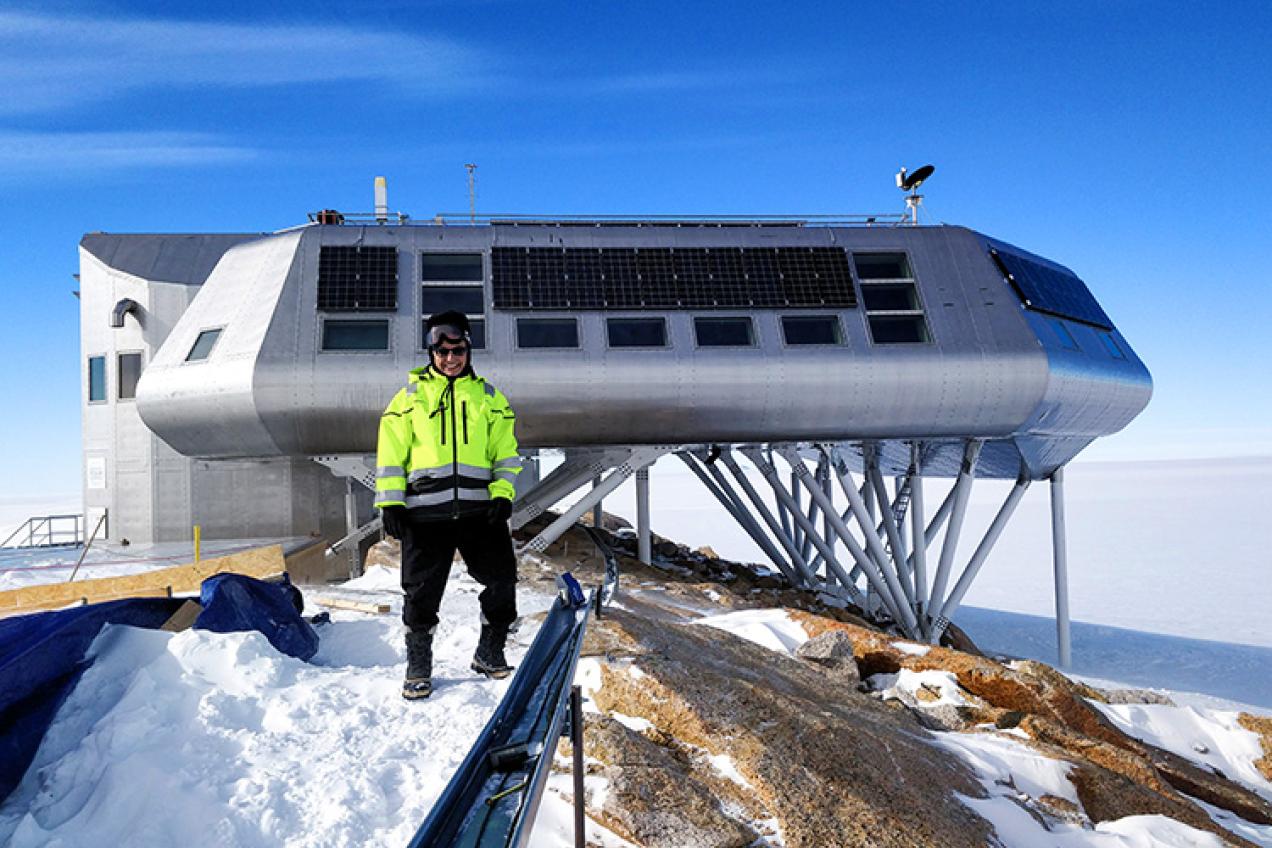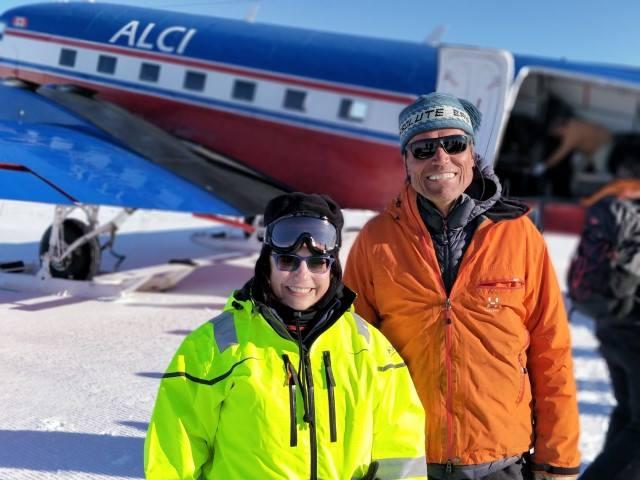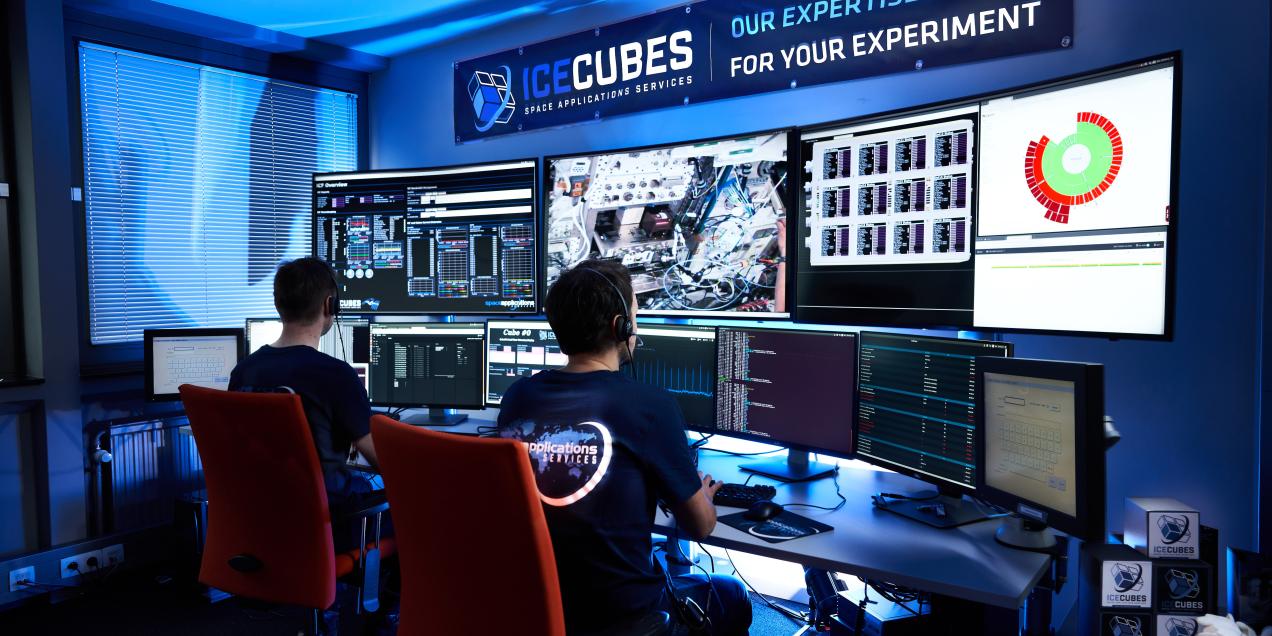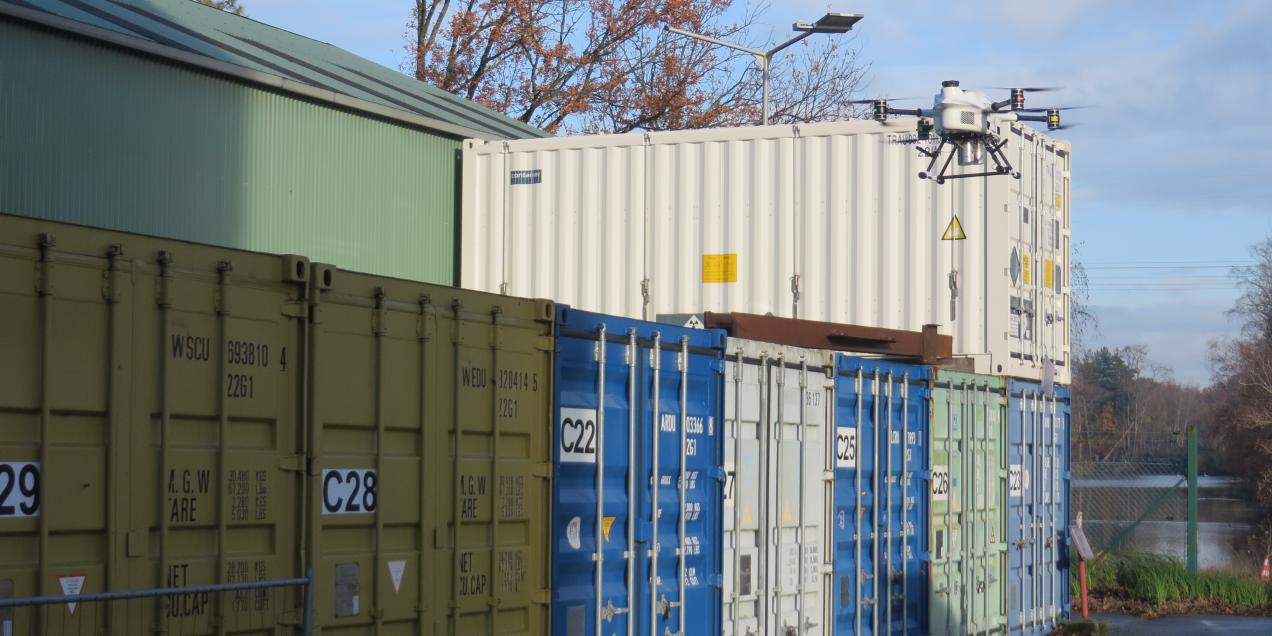Researcher Sarah Baatout joins Princess Elisabeth Antarctica
How about we get closer to Mars by bringing test tubes and microscopes in the polar station Princess Elisabeth? This is the gamble taken by Sarah Baatout, researcher at SCK CEN, who immerses herself during 1 month in extreme conditions of containment to better understand how our immune system reacts into space. The data collected will be essential to make progress in the space and medical fields.

Als moeder van twee kinderen, uitstekend schaatsster, universiteitshoogleraar en radiobiologe bij SCK CEN, staat Sarah op het punt een droom te realiseren: het Poolstation Prinses Elisabeth vervoegen om er haar onderzoek verder te zetten. Samen met een twintigtal andere Belgische en internationale wetenschappers vertrekt ze op 16 december aanstaande op een lange ontdekkingsreis. Het aftellen is begonnen en na alle wetenschappelijke voorbereidingen, zowel fysiek als mentaal, bereidt Sarah zich voor om haar laatste dagen in België door te brengen met haar Belgisch-Engelse familie.
Als hoofd van de afdeling radiobiologie van SCK CEN bestudeert Sarah al jarenlang de impact van extreme omstandigheden (afzondering, stress, isolement,…) op het menselijk immuunsysteem. Dit onderzoek helpt om beter te begrijpen hoe het lichaam van een astronaut in de ruimte functioneert en laat toe om toepassingen te ontwikkelen die het mogelijk maken om, op een dag, naar Mars te vliegen

Het poolstation, ruimtesimulator
Tijdens deze missie van een maand zal Sarah Baatout onderzoek doen naar de impact van extreme leefomstandigheden op het menselijk lichaam. In plaats van astronauten volgt de radiobiologe dit keer de bemanning van het poolstation. Voor, tijdens en na hun verblijf in Antarctica zal ze verschillende monsters nemen, waaronder bloed. De afgenomen monsters zullen in het poolstation en in de laboratoria van SCK CEN geanalyseerd worden. De analyses zullen waardevolle informatie verschaffen over, onder andere, het stressniveau van de vrijwilligers en het effect van deze speciale omgeving op hun immuunsysteem. Sarah zal ook een reeks medicijnen testen die astronauten tijdens hun ruimtemissie meenemen om met name hun stabiliteit en hun resistentie tegen straling te analyseren.
Sarah zal ook de eigenschappen van spirulina in deze extreme omstandigheden bestuderen. Deze groene alg wordt al gebruikt als voedingssupplement voor astronauten en zou een gunstig effect kunnen hebben op een verstoorde darmflora door stress.
This research, which enables human space flights, facilitates progress in medicine. The best example is proton therapy which stems from space research. Today’s mission will help develop the medical kit of tomorrow’s astronauts.
The Belgian Nuclear Research Centre also participates in promising research to fight against aids and cancer. In space, the human body is no longer subject to gravity which alters the blood flow in the organism. The blood then gathers in the upper body. By noticing the abundance of blood at the carotid’s level, the organism produces fewer white and red blood cells. The body is said to be immunodeficient. Thanks to on-earth simulation of these conditions, Sarah Baatout participates in several studies which aim to improve radiotherapeutic treatments. All these projects are supported by Belspo.
Sharing her experience with youngsters was crystal clear for this voracious researcher who gets involved in numerous educational projects. “I managed to get an hour of internet every day”, says Sarah Baatout, head of Radiobiology Unit at SCK CEN, with much enthusiasm. “Through videoconferences, I will make the most of this time to explain to primary and secondary school classes what my mission is. I hope I will pass on my passion for science and give rise to some vocations!”
One of its kind in the world
Since 2004, Princess Elisabeth Antarctica has always been the odd one out in the world of polar stations. Its unusual architecture, able to withstand extreme weather conditions in Antarctica is, to this day, still unique. Another Belgian research centre is responsible for this technological stunt: the von Karman Institute for Fluid Dynamics, located in Rhode-Saint-Genèse/Sint-Genesius-Rode. Its researchers multiplied tests and models to polish the design of this first “zero-emission” research station in Antarctica. Wind tunnel tests allowed for an efficient assessment of comfort and resistance in relation to snow and winds (gales up to 250 km/h) for various architecture concepts of the station and its position on a rocky ridge.
Press contact
pers [at] sckcen [dot] be (pers[at]sckcen[dot]be) - 014 33 21 49
Related articles
- 17 April '24
 30 August '23
30 August '23 02 February '23
02 February '23